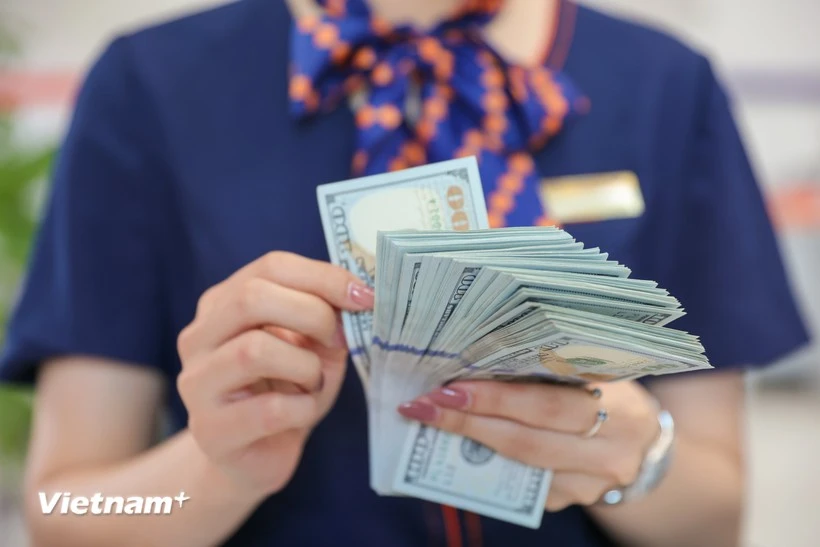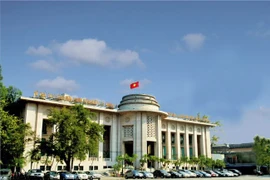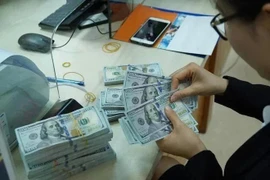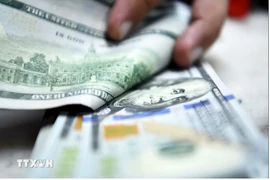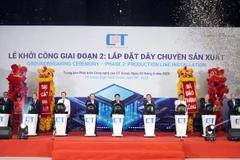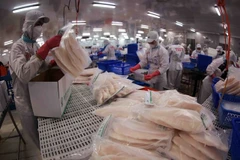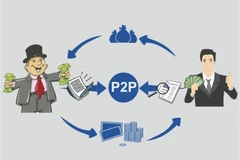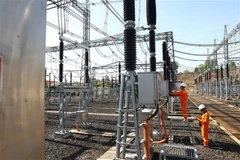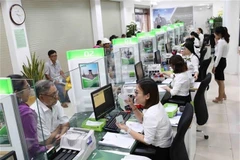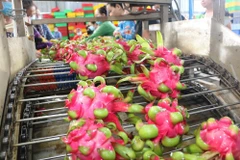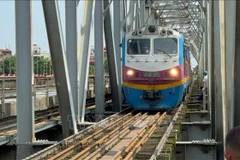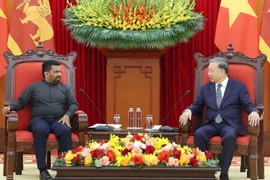Hanoi (VNA) - The VND/USD exchange rate has experienced a sharp increase since early October, especially after former President Donald Trump won the 2024 presidential election.
Experts suggested that the likelihood of a stronger US dollar following Donald Trump's return to the White House could place significant pressure on policymakers in managing exchange rate policies.
His proposals for expansionary fiscal policies and tariffs may cause inflation to rise, which could, in turn, affect the Federal Reserve's (Fed’s) future interest rate decisions, the experts noted.
These developments may leave an impact on the USD/VND exchange rate, with the US dollar likely appreciating against the Vietnamese dong, thus, could affect Vietnam’s export-import activities and capital flows.
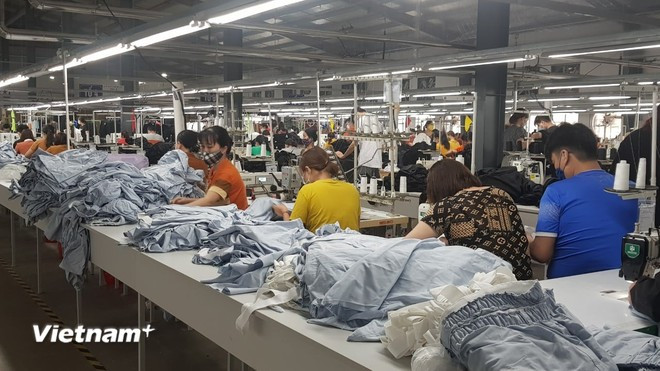
In fact, the USD/VND exchange rate has experienced significant volatility since the beginning of this year. During the first half of 2024, it was under considerable pressure, rising by nearly 5% sometimes. In the free market, the rate occasionally exceeded 26,000 VND/USD.
In the latter half of the third quarter of 2024, the USD/VND exchange rate cooled ahead of the Fed’s interest rate cut, with only a 1.3% increase at the end of September.
Impact on enterprises with US-dollar loans
Many businesses with US dollar-denominated loans have recorded significant exchange rate losses during the first half of the year. For example, Vietnam Airlines reported a loss of 1.2 trillion VND (48.1 million USD) on a total USD loan equivalent to 6.1 trillion VND in the period.
According to financial expert Dinh Trong Thinh, rising exchange rates benefit export businesses as they earn in US dollars. However, these businesses do not gain much advantage because most machinery, equipment, and raw materials used for export production must be imported and paid for in US dollars. As a result, a higher exchange rate also increases input material costs.
From a business perspective, Bui Tien Vinh, Chairman of the Board of Directors at Vietnam Herbs and Food JSC, said that while appreciation of the US dollars brings short-term benefits to exporters, it negatively impacts businesses in the long run.
Experts predict that the VND/USD exchange rate will continue to rise until the end of the year due to expectations for the Fed to maintain long-term interest rates, growing demand for US dollar in trade, and its role as a safe-haven asset.
Associate Professor Dr. Nguyen Huu Huan, Head of the Financial Markets Department at the Ho Chi Minh City University of Economics, believes that exchange rate pressures will remain high in November. He warned that, at its peak, the Vietnamese dong could depreciate by 5%, with bank rates approaching 26,000 VND/USD.
Solutions to stabilise USD/VND exchange rate
Thinh suggested that the State Bank of Vietnam (SBV) maintain a reasonable level of foreign exchange reserves to intervene in the market when necessary. It is necessary for the SBV to continue adjusting the central exchange rate in a flexible manner to mirror free-market rates. This approach will discourage speculation, better reflect international market fluctuations, and reinforce investor confidence.
Additionally, he recommended enhanced coordination between monetary and fiscal policies to support sustainable economic growth and avoid overheating, which could lead to inflation. In case of need, selling US dollar from foreign exchange reserves could help balance supply and demand and stabilise the exchange rate.
To support businesses and individuals affected by exchange rate fluctuations, the SBV could implement preferential credit programmes, particularly for exporters and importers who are directly impacted. Allowing businesses to borrow at lower interest rates for a short period would alleviate cost pressures.
The central bank has responded to an inquiry raised by Tran Anh Tuan, a National Assembly delegate from Ho Chi Minh City, on solutions to stabilise exchange rates and reduce interest rates further at a Q&A session. SBV Governor Nguyen Thi Hong said that the central bank will closely monitor market developments. If exchange rate volatility becomes excessive, the SBV will promptly intervene by selling foreign currency.
Regarding interest rates, the governor noted that the SBV will proceed cautiously because excessive rate cuts could increase exchange rate pressures and adversely affect foreign investment inflows./.
